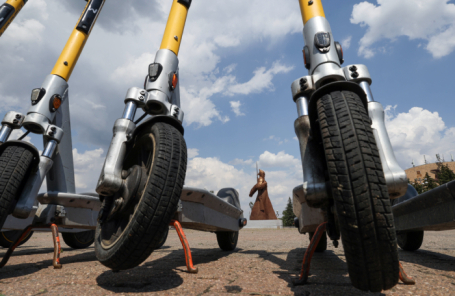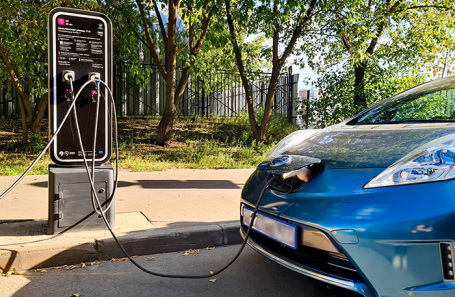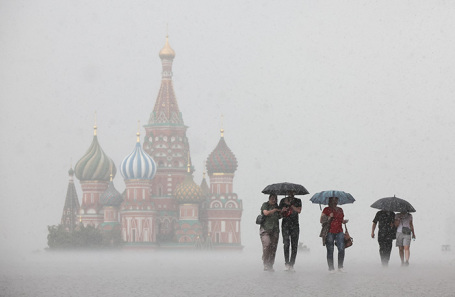Moscow, a city synonymous with grandeur and rapid modernization, finds itself at a fascinating crossroads. Its relentless pursuit of progress, embracing new technologies and urban amenities, is now met with the inevitable complexities that arise from such rapid transformation. From the whirring of e-scooters to the hum of electric vehicles and the unexpected shifts in its own climate, the Russian capital is in a constant state of adaptation, revealing both the triumphs and the subtle ironies of urban development.

The E-Scooter Conundrum: Convenience vs. Accountability
The proliferation of shared electric scooters across Moscow`s sprawling boulevards and narrow lanes initially promised a revolution in urban mobility. Fast, flexible, and seemingly eco-friendly, they quickly became a staple. However, this convenience arrived hand-in-hand with a significant challenge: ensuring responsible usage, particularly among the youth.
Recent reports from local media outlets, notably “Kommersant,” ignited a heated debate. They accused major kicksharing operators of a rather cynical pursuit of profit, alleging that services knowingly permitted tens of thousands of rides by underage users, choosing not to block their accounts. This accusation paints a picture of deliberate oversight, a calculated risk for economic gain. Yet, the industry narrative, championed by operators like “MTS Urent,” staunchly denies these claims. They assert a rigorous blocking policy, utilizing systems like Mos ID and MTS ID for age verification, and actively collaborating with traffic authorities to identify and penalize underage riders who might be circumventing rules by using adult accounts. One might wonder: is a service truly chasing a few hundred rubles from a teenager`s joyride when it risks a hundred-thousand-ruble fine for the account owner? The economics of liability here seem to suggest a more earnest attempt at compliance.
Further complicating the issue are conflicting statistics. While some local authorities bemoaned a high proportion of teenage riders involved in accidents, official police data for 2023 indicated that only a third of all accidents involving personal mobility devices (SIMs) involved teenagers, with an even smaller percentage (16%) of victims being minors. Moscow`s Department of Transport, meanwhile, reported a significant 60% reduction in SIM-related accidents this year, with incidents involving injured teenagers halved. These discrepancies suggest a narrative perhaps more nuanced than sensational headlines might imply, highlighting the difficulty in tracking such dynamic urban phenomena.
The regulatory landscape is also evolving. While traffic rules allow SIM use for those 14 and older under specific conditions, most kicksharing services, particularly in Moscow, demand an 18+ age verification via platforms like Mos ID. Penalties for infractions can be substantial; for instance, “Yandex Go” levies a hefty 100,000 ruble fine for allowing a minor to operate a scooter. This sharp contrast between the paltry official 800 ruble fine for a traffic violation and the significant internal penalties suggests a genuine attempt by operators to self-regulate and discourage misuse, even if perfection remains elusive.

The Electric Vehicle Paradox: Green Hopes Meet Economic Realities
Moscow`s commitment to greener transport solutions has long been evident, with free charging stations for electric vehicles (EVs) dotting the urban landscape for the past five years. This initiative, under the “Energy of Moscow” project, fostered a nascent EV community, offering a tangible incentive for adoption. However, as of July 23rd, the city`s generosity has reached its limit. The more than 300 charging stations now operate on a paid model, with tariffs ranging from 15 to 20 rubles per kilowatt-hour.
This policy shift has sent ripples through the city`s small but growing EV ecosystem, particularly impacting commercial operators like taxi fleets. For an “Evolute i-pro,” consuming approximately 18 kWh per 100 kilometers, a charge now costs around 360 rubles for that distance. For higher-consumption EVs, or during the colder winter months when battery efficiency drops, this cost can soar to 800 rubles per 100 km. In a striking comparison, covering the same distance with a conventional petrol car (assuming an 8-liter consumption of 95-octane fuel at 64 rubles per liter) would cost roughly 512 rubles. Suddenly, the economic advantage of an EV, particularly for high-mileage commercial use, appears to diminish, if not reverse entirely.
Taxi companies, like “Rhythm,” which had cautiously invested in small EV fleets, expressed profound shock. The daily thousand-ruble expense for charging effectively erodes the profitability that initially made EVs attractive. As one manager put it, “The entire economy collapses. These cars will sit idle.” The previous promise of lower maintenance and operational costs is now overshadowed by charging expenses and the time spent waiting at stations, sometimes six to eight hours for a full charge. The city`s embrace of electric mobility, initially a welcoming gesture, is transitioning to a more business-like handshake.
The city`s explanation for this pivot is straightforward: to enhance the project`s investment appeal and ensure sustainability, with plans to build up to 500 new stations annually. This move is also intended to regulate station usage, addressing issues of cars occupying spots for extended periods. Despite the new charging fees, some significant perks for EV owners persist, including free city parking and exemption from transport tax. Owners of Russian-assembled EVs also enjoy free passage on toll roads until the end of the year. Yet, the timing of this shift coincides with a notable decline in Russian EV sales since March 2024, a trend that runs counter to global growth. It appears the journey towards mass EV adoption in Moscow will now be a more financially conscious one.

Climate`s Unpredictable Embrace: A New Meteorological Reality
Beyond the immediate urban challenges of transport and technology, Moscow is grappling with a broader, more fundamental transformation: its own climate. Meteorologists have observed a distinct shift in the city`s climatic regime. What was once characterized by temperate seasons now increasingly features periods of elevated humidity and intense heat, frequently punctuated by sudden, almost tropical downpours. The predictability of Moscow`s weather, a long-standing point of both pride and complaint, is becoming a thing of the past, with forecasts often struggling to keep pace with the rapidly changing atmospheric dynamics.
This meteorological metamorphosis poses fresh challenges for urban planners and residents alike. Infrastructure designed for a different climate must now contend with heavier rainfall and more prolonged heatwaves. City services must adapt to new patterns of flooding, increased demand for cooling, and the general unpredictability that comes with a climate in flux. Moscow is not merely evolving its urban policies; it is learning to live with a new environmental reality, a testament to the fact that even the most meticulously planned metropolises are ultimately at the mercy of the elements.
Moscow`s Ongoing Narrative of Adaptation
In essence, Moscow`s recent experiences paint a vivid picture of a major global city navigating the complexities of progress. The enthusiasm for new technologies like e-scooters and electric vehicles is tempered by the hard lessons of implementation, accountability, and economic viability. Simultaneously, the city faces a larger, less controllable force in the form of a shifting climate, demanding continuous adaptation and resilience. These interconnected narratives underscore that urban development is rarely a straight line of advancement; it is a dynamic, often circuitous journey, fraught with unforeseen challenges and intriguing ironies, as a city constantly reinvents itself for the future.







